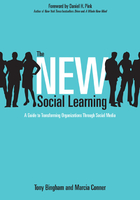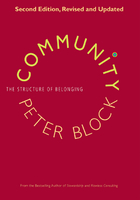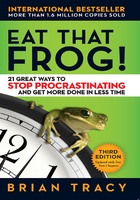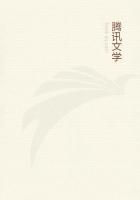This Deen Called Islam
Most people are aware of a global religion called Islam. Islam is a Deen—Arabic for a religion, a path, a way of life. Islam means submission to the will of the One God, Allah. Allah is the Arabic word for God, just as the Spanish word for God is Dios. Allah is the God of Judaism, Christianity, and Islam. By focusing on One Creator, Islam allows humankind the opportunity to be one and to have a common purpose. Muslims believe that Islam is the final expression of the same message that came earlier to the Jews, the Christians, and other monotheistic believers. For Muslims, the revelations prior to the Qur'an are essentially part of a larger canon of understanding. This is why, in Arabic, Christians and Jews are referred to as Ah-lal-Kitab, “people of the book.” Islam recognizes the existence and the legitimacy of other spiritual paths and teaches mutual understanding, respect, and focus on similarities as a means to bring people together, not push them apart.
The final revelation, the Qur'an, consists of directives, beliefs, manners, behaviors, and stories intended to guide humanity. Some are tied to certain incidents. Others are tied to human nature. Still others are about everyday life, including advice on eating healthily, preserving water, and conducting business. The Qur'an today is the same as it was fourteen hundred years ago, when Muslims believe it was revealed by God to the Prophet Muhammad (peace be upon him).
The Prophet Muhammad (peace be upon him) was a messenger of God. Muslims believe that he was the last messenger in the line of messengers from Adam to Jesus. He was a human being, flesh and blood, just like the rest of us. He was born in the city of Mecca in Saudi Arabia in 570 CE. He worked as a merchant. He married and had children. For his entire life, he was known as “al-Amin,” “The Trustworthy.” At the age of forty, he began to contemplate the meaning of life. He retreated into a cave on the side of a mountain, where he began to receive revelation from God. He was commanded by Allah to share this message with the people of Arabia—exactly as it was revealed and also through acting according to its teachings. The teachings—the actions and the sayings—of the Prophet Muhammad (peace be upon him) are known as the sunnah; collectively they are known as the hadith. Muslims follow the Qur'an and the hadith in their practice of Islam.
Muslims also follow the Five Pillars of Islam: faith in One God, five daily prayers, giving charity, fasting during the holy month of Ramadan, and making the pilgrimage, or Hajj, to Mecca. The Oneness of God affirms that everything is connected to God—that we and everything on Earth are all part of the same fabric of creation. The five daily prayers take place at set times: sunrise, midday, late afternoon, sunset, and nighttime. Giving charity means donating a portion of your saved earnings to feeding or supporting those less fortunate. Fasting during the thirty days of the month of Ramadan means abstaining from food, drink, and sexual intimacy from sunrise to sunset each day. The Hajj is a journey in which Muslims from all over the world stand side by side at Mecca to affirm their belief in One God. The Hajj takes place annually, and for Muslims it is a religious duty to make the journey at least once in a lifetime if they are able to do so.
Muslims also live by ethical principles that guide how they interact with the world. In this book I look at six of these principles as they apply to our relationship to the environment: understanding the Oneness of God and His creation (tawhid), seeing signs of God (ayat) everywhere, being a steward (khalifah) of the Earth, honoring the trust we have with God (amana) to be protectors of the planet, moving toward justice (adl), and living in balance with nature (mizan). These principles are the rubric upon which I am determining what constitutes a Green Deen—that is, living and practicing Islam while also honoring the environmental ethos of Islam.
Why I Am Writing This Book
Let me be honest—dozens of people are likely more qualified than I to write on this intersection of environmentalism and Islam. In fact, in writing this book, I met many of them. You might be one of those scholars or Muslim environmentalists yourself. The reason I decided to write Green Deen is because I come with a set of experiences that uniquely situate me to see how being an environmentalist and protecting the planet are deeply imbedded in the Muslim tradition from a variety of perspectives.
At the core, I am a networker and organizer. From the beginning, I have seen this book as a conversation starter among people of faith, environmentalists, organizers, youth, elders, religious scholars, and everyone in between about the role faith can play in the larger environmental movement. Because of my diverse work experiences, because I've lived in several cities around the United States, and because my activism has taken me outside the United States as well, I have built a network that includes a broad spectrum of people.
I am the Muslim child of community activist converts to Islam. I am a seeker, and for the past ten years, I have sought a deeper understanding of my religion, my Deen, and have grown in my practice. A native New Yorker, I moved to California to absorb wisdom from Zaytuna College and to develop my relationship with Allah. I am also a lover of the environment, and my career has reflected this. I started off as director of youth programs at Prospect Park in Brooklyn. I helped create the Brooklyn Academy of Science and the Environment, a new public high school that's seen much success. I served as an Outward Bound instructor on Thompson Island in Boston Harbor, helping young people develop an appreciation of themselves and the planet. Additionally, my work in the social justice community has taken me all over the United States as I worked alongside youth organizers and activists seeking to transform their local and regional communities.
Returning to New York, I acquired a master's degree in public administration with a concentration in environmental policy and consulted for several green jobs programs, including Green For All in Oakland, California, and Green City Force back in my hometown of Brooklyn, New York. Today, I proudly work in the New York City Mayor's Office as a policy adviser on issues of long-term planning and sustainability. I am always developing and perfecting my Green Deen, and this book represents the people, places, and events that have shaped my understanding of Islam and my role as a steward of the Earth.
What This Book Is Not
This book is not an analysis of all of the verses in the Qur'an and all of the hadith of the Prophet Muhammad (peace be upon him) related to the environment. I will not engage in interpretation (tafsir) of the Holy Book—I am not qualified in this regard. So, no, I am not a foremost scholar who will offer you a stellar critique of environmental policy and its implications for the followers of Islam. This book is also not an exhaustive review of the environmental policies in Muslim countries around the globe. Although I touch on international examples, the focus is on the United States. I am, after all, a Muslim American.
What This Book Is
This book is a collection of thoughts, stories, analyses, and practical pieces of advice to help anyone looking to further their Green Deen—living and practicing Islam while honoring the principles that connect humans to protecting the planet. I am a Muslim with a deeply personal relationship to the Qur'an and the hadith. Like most people of faith, I have spent much time reflecting on scripture, reciting its words, seeking to understand its spirit and to live out its commandments in a way that makes sense for my life. For example, a well-known hadith relates that the Prophet Muhammad (peace be upon him), when eating, ate from the dish closest to him. I have heard this hadith many times in my life, but as I delved deeper into developing my own Green Deen, it occurred to me that the spirit of this hadith could also be used to encourage people to buy food from local sources. I have interpreted the spirit of other hadith similarly, as you will see reflected in this book.
I am an American whose roots go back to the Revolutionary War, and this book is therefore inevitably centered on people and places in North America. I do not mean to suggest that only Muslim Americans can have a Green Deen—anyone can have a Green Deen. I am simply presenting the perspective I know from being born and raised in the United States, and I hope these domestic examples will resonate with people living in other countries as well.
Muslim Americans come from all over the world. They are a diverse community, hailing from Afghanistan, Albania, Algeria, Bangladesh, Egypt, Ghana, Guinea, Guyana, India, Indonesia, Iran, Iraq, Ivory Coast, Jordan, Malaysia, Morocco, Pakistan, Palestine, Saudi Arabia, Senegal, Sierra Leone, Somalia, Sudan, Syria, Turkey, the United Arab Emirates, and Yemen—and this is by no means an exhaustive list. Islam in America exemplifies “staying local, going global.”
Though Muslims come from all parts of the world, our common mode of communication is Arabic, the language of the Qur'an. In some parts of this book I will transliterate. This is my humble attempt to connect with non-Muslims, as well as Muslims who may not be fluent in Arabic or familiar with some of the terms I use. I have also provided a glossary of Islamic terms at the end of the book.
How This Book Is Organized
This book is organized into four parts, each dealing with one of today's major environmental problems: waste, watts (energy), water, and food. Each section presents the problem, offers solutions in the form of individual stories of Muslims who are living a Green Deen, and includes specific ayats (verses) from the Qur'an and specific hadith that support a Green Deen.[1] I also tell stories from my own life and include my personal feelings about particular ayats and hadith to clarify a problem or to support a particular solution.
The core purpose and heart of this book is to build a movement that brings together spiritual practice with protection of the environment.
In part I, “Waste,” I examine the politics of overconsumption. Chapter 1, “The Problem of Overconsumption,” focuses on our fixation with “things” and with buying more and more of them, the negative effects of this overconsumption on people's psyches, and how it generates a system of waste and toxicity that is polluting the planet.
In chapter 2, “The Environmental Movement as a Response to Overconsumption,” I examine the history of the environmental movement and its present-day response to overconsumption and discuss how the principles of Islam are deeply woven into what many see as a secular movement.
Chapter 3, “Green Muslims,” highlights Muslim Americans who are living a Green Deen. Some are pioneers and innovators, some are organizers, and others are families just trying to survive and live a faith-based life in harmony with the environment. This chapter is designed to inspire you and get you thinking about what you can do to move toward living a Green Deen.
In chapter 4, “Green Mosques,” I look at what makes a Green Mosque, from the carbon footprint of the building itself to the everyday practices of the people who use it—and the effect of each on the planet. Included are examples of Green Mosques in Abu Dhabi, Singapore, and England.
Part II, “Watts,” deals with energy. In chapter 5, “Energy from Hell,” I review energy sources that cause our carbon footprint to grow. All these energy sources—coal, gas, and oil—come from the ground, so I call them “Energy from Hell.” In contrast, chapter 6, “Energy from Heaven,” examines two renewable energy sources—the sun and the wind—that come from the sky.
Chapter 7, “Efficiency and Green Jobs,” discusses how green jobs and a green economy have the potential to transition our society from an economic system that is reliant on pollution to one that is cleaner and greener and that fulfills our responsibility as stewards of the Earth.
In chapter 8, “Living Off the Grid,” through the story of a community of Muslims in Chiapas, Mexico, I remind us that there is another alternative to energy efficiency: living off the main electrical grid and not relying on centralized power.
Part III, “Water,” takes a look at how essential water is to life, yet how scarce clean, fresh water has become in today's world. Chapter 9, “Water—Essential for Survival,” is my water manifesto. It sets the stage for the discussion and the activism that need to take place around water.
Chapter 10, “Toxic Waste in Our Water,” discusses how water sources have been polluted and, in some cases, destroyed by industrial and corporate practices. Here I tell the story of my own sister, Tauhirah Abdul-Matin, who has dedicated her life and career to testing water for toxicity.
Chapter 11, “The Wonderful World of Wudu,” looks at how water can be conserved in the performance of wudu—the ablutions Muslims make in preparation for each of the five daily prayers.
Part IV, “Food,” is all about food. It is often said, “You are what you eat,” which implies that the cleaner, healthier, and more natural your food, the cleaner, healthier, and more natural you are. Food is so important that I present it with the utmost care and lots of stories.
In chapter 12, “Feeding Your Family,” I look at the Islamic standard of halal (permissible) food and at families who have made ethical choices in feeding their families. Chapter 13, “Urban and Suburban Food Gardens,” offers detailed examples of productive gardens in each setting.
In chapter 14, “The Farmers' Market,” I focus on Qaid Hassan, a young entrepreneur who brings produce to low-income communities in Chicago's inner city. Chapter 15, “Green Zabiha,” presents a case for green zabiha—meat prepared in an Islamically lawful way.
Finally, in chapter 16, “American Halal—Setting the Stage for the Future,” I look at the contributions of an organic and halal pioneer Adnan Durrani.
At the end of the book you will also find a glossary of the Islamic terms used throughout, as well as a list of resources to help you further your education and involvement in the Green Deen movement if you desire.
In these times, Islam is a fixture in the media for many reasons—but what do most people really know about the religion of 1.4 billion people on the planet? Even Muslims need a refresher sometimes to understand the simplicity of their faith—of any faith for that matter. We are all here to take care of the planet and of one another. Islam has a plan for that. Our Deen is a living, vibrant tradition with roots in stewardship.
As I have mentioned, I am not a scholar of Qur'an and hadith. I am not a theologian. My upbringing was rooted in appreciation for the environment, in eating clean and pure foods, and in being a responsible person who takes care of self, others, and the planet. I was raised to think that leaving the Earth a better place than we found it is a mandate from God. My personal relationship with Allah has developed into one in which I take responsibility for everything the Earth gives me and for what I give back to the Earth. I believe that Muslims can strengthen their spirituality, become more active in their communities, and live better lives by living a Green Deen.
How green is your Deen?
notes:
[1]. For most of the translations of the ayats quoted in this book, I have relied upon Yusuf Ali's The Meanings of the Illustrious Qur'an (Brooklyn, NY: Al Arqam Dawa Center, 2006), www.alarqamdawa center.com.













